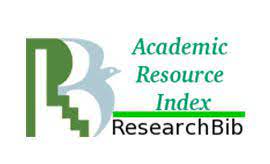Digital tools in shaping entrepreneurial competence of teachers: challenges and opportunities
DOI:
https://doi.org/10.51707/2618-0529-2024-31-06Keywords:
entrepreneurial competence, digital environment, digital tools, professional skills development.Abstract
Entrepreneurial competence is one of the key competencies for teachers in the 21st century. In the context of Ukraine’s post-war economic recovery, its development is particularly relevant, as teachers play a leading role in implementing economic strategies into the educational system and fostering an entrepreneurial mindset in the younger generation. Entrepreneurial competence entails a set of knowledge, skills, and attitudes necessary for the successful implementation of innovative ideas, initiation of positive changes, and effective management of educational projects. Teachers with well-developed entrepreneurial competencies can create curricula that promote students’ acquisition of innovative approaches to solving economic problems, preparing them for future professional activities and enhancing the country’s competitiveness in the labor market. At the European level, several key documents have been adopted that define the importance of entrepreneurial competence for teachers and provide recommendations for its development. In particular, in 2015, the UN adopted the “Transforming our World: The 2030 Agenda for Sustainable Development” with global goals for entrepreneurship development. The European Commission issued the report “Entrepreneurship Education at School in Europe” (2022) with recommendations to integrate entrepreneurial education into curricula and develop teachers’ entrepreneurial competencies. In 2016, the “EntreComp: The European Entrepreneurship Competence Framework” was developed, detailing its components for creating curricula. The EU Council’s recommendations “Key Competences for Lifelong Learning” (2018) identify entrepreneurial competence as one of the eight key competencies for modern individuals. In Ukraine, there are no separate documents directly addressing teachers’ entrepreneurial competence yet, but it is mentioned as necessary for pedagogical staff in several key documents. In particular, in the Law “On Education”, the Concept “New Ukrainian School”, and the Professional Standards for the professions “Primary School Teacher”, “Teacher of General Secondary Education Institution”, and “Head of General Secondary Education Institution”. An important challenge is the implementation of practical measures at all levels of education for the development of digital tools for fostering entrepreneurial competence in both teachers and students.
References
United Nations. (n.d.). Transforming our world: the 2030 Agenda for Sustainable Development / Department of Economic and Social Affairs. Retrieved from https://sdgs.un.org/2030agenda.
European Commission / EACEA / Eurydice. (2016). Entrepreneurship Education at School in Europe. Luxembourg : Publications Office of the European Union. DOI: https://doi.org/10.2797/301610.
Bacigalupo, M., Kampylis, P., Punie, Y., & Van den Brande, L. (2016). EntreComp: The Entrepreneurship Competence Framework. Luxembourg : Publications Office of the European Union. DOI: https://doi.org/10.2791/593884.
European Commission. (2019). Key Competences for Lifelong Learning. Luxembourg : Publications Office of the European Union. DOI: https://doi.org/10.2766/569540.
European Commission. (2013). Communication from the Commission to the European Parliament,the Council, the European Economic and Social Committee and the Committee of the Regions: Entrepreneurship 2020. Action Plan: Reigniting the entrepreneurial spirit in Europe. Brussels. European Commission. Retrieved from https://eurlex.europa.eu/legal-content/EN/TXT/?uri=celex-%3A52012DC0795.
OECD. (2019). TALIS 2018 Results (Volume I): Teachers and School Leaders as Lifelong Learners. TALIS. Paris : OECD Publishing. DOI: https://doi.org/10.1787/1d0bc92a-en.
Boudreaux, S. (2018). Developing entrepreneurial competencies for teachers through an online simulation / P. C. Ruppert (Ed.), Handbook of Research on Pedagogical Models for Next-Generation Teaching and Learning. (pp. 210–233). DOI: https://doi.org/10.4018/978-1-5225-5413-0.ch011.
Fayolle, A., & Gailly, B. (2015). The impact of entrepreneurship education on entrepreneurial attitudes and intention: Hysteresis and persistence. Journal of Small Business Management, 53 (1), 75–93. DOI: https://doi.org/10.1111/jsbm.12065.
Ovcharuk, O. V. (2018). Rozvytok pidpryiemnytskoi kompetentnosti maibutnikh fakhivtsiv u systemi osvity yevropeiskykh krain [Development of entrepreneurial competence of future specialists in the education system of European countries]. Visnyk Cherkaskoho universytetu. Seriia “Pedahohichni nauky” — Bulletin of Cherkasy University. Series “Pedagogical Sciences”, 9, 59–68 [in Ukrainian].
Pometun, O. I., Pylypсhatina, L. M., Remekh, T. O., Melnyk, I. M., & Velko, O. V. (2020). Formuvannia pidpryiemnytskoi kompetentnosti: teoriia i praktyka [Formation of entrepreneurial competence: Theory and practice]. O. I. Pometun (Ed.). Kyiv : Komprynt [in Ukrainian].
Rezultaty onlain-opytuvannia “Hotovnist i potreby vchyteliv shchodo vykorystannia tsyfrovykh zasobiv ta IKT v umovakh viiny: 2023”. Analitychnyi zvit [Results of the online survey “Readiness and needs of teachers regarding the use of digital tools and ICT in war conditions: 2023”. Analytical report]. (2023). O. Ovcharuk (Ed.). Kyiv : Institute for Digitalisation of Education, NAES of Ukraine. DOI: https://doi.org/10.13140/RG.2.2.25529.34402 [in Ukrainian].
Downloads
Published
How to Cite
Issue
Section
License
Copyright (c) 2024 Scientific notes of Junior Academy of Sciences of Ukraine

This work is licensed under a Creative Commons Attribution 4.0 International License.













